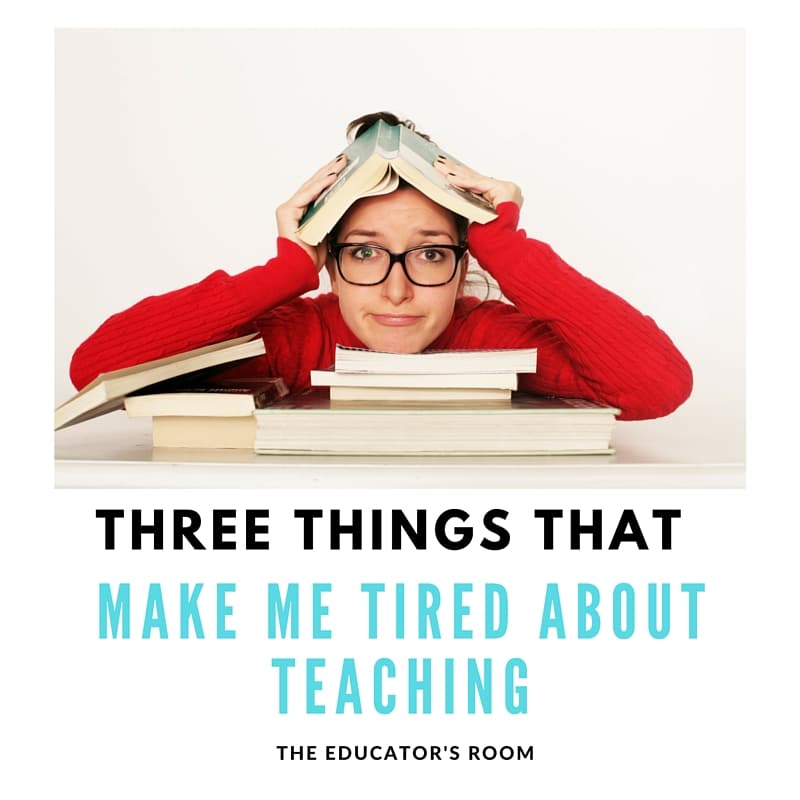I have always loved learning. Not the sit in a desk and absorb everything from a lecture, but hands-on interactive discussion that is true learning. In my 19 years of education, I have seen three things that slowly are breaking down our education system. These three things make me exhausted each day before I even get out of bed and start the process of learning in my classroom.
According to Webster’s Dictionary, tolerance is a willingness to accept feelings, habits or beliefs that are different from your own. In the past, this has meant to socially respect those who do not hold the same beliefs as yourself. Slowly, our society has evolved this definition to discard respect. Tolerance is now self-centered and simply means feelings, habits or beliefs that are different from your own without the acceptance. We no longer tolerate those who are different. Instead of standing firm in our personal feelings, habits or beliefs we have become this group of people who need everyone to agree with us to prove we are right. And obviously, if they do not agree, they are wrong.
This limited, self-centered definition has become toxic in our schools. While we teach understanding and empathy in classrooms every day, many students return to a non-tolerant world. The media, social organizations, and others promote this self-centered tolerance. Those that are different should not be understood, but feared or hated. Instead of accepting or learning about others differences to see where their past has led them and how they got to where they are, students are told others should be like them or they are against them. While we practice and discuss true tolerance in classrooms, it is exhausting to be fighting something beyond our classroom that counter acts each lesson we have.
According to Webster’s Dictionary, discipline is having control gained by requiring rules be obeyed and bad behavior punished. It is also a way of behaving that shows a willingness to obey rules and orders. School discipline has changed greatly over the past 50 years. Many states have outlawed corporal punishment and we know rewarding behaviors and building community are successful management strategies. In order for this to occur, however, there must be agreed upon rules. Rules are slowly dissolving in our society. Rules are fine and helpful until they punish OUR child. For someone else’s child, great. But for my child, no!
States are taking away protection from teachers and working in a public job with children is a difficult position to ask anyone to be a part of. In order for children to learn, we must have safe environments. In order to have successful classroom management, there must be rules. And in order for rules to work, we must have an open dialogue where all parties involved listen to others to work towards what is best for the group. While the old paddle in the principal’s office is not an effective method, when rules are broken in a classroom there must be consequences. Most teachers have a heart for kids and a heart for learning. We are simply trying to provide a safe learning space for every student in the classroom. We are thinking of content and standards and supplies and engagement. We are watching for misconceptions and learners who need to be pushed. We are keeping track of time and remembering who left for the bathroom (including how long they have been gone). When teachers can be fired and prosecuted with no due process, it is exhausting to think through each situation we encounter daily in classroom management.
According to Webster’s Dictionary, accountability is an obligation or willingness to accept responsibility for one’s actions. We teach children daily to be responsible for their work, their choices and themselves. Teacher accountability has been a hot discussion over the past several years. How do we hold teachers accountable for what students are learning? The largest response has been to require more testing and more paperwork. Students are tested at state and national levels to prove what has been learned. Teachers are asked to keep data to demonstrate learning. They are required to document standards and learning and testing and objectives. While understanding student learning is important, it is a piece of the puzzle and there are numerous ways to show growth. The push for accountability demands teachers prove what they are teaching in unnatural environments. So a single test for a child who may have grown a year or more in the classroom (while coming in two years below grade level) may show a teacher is not doing their job. A simple state standardized test showing what happens with critical thinking, creativity, perseverance, group work and communication skills is exhausting because it does not show the most important objectives of my classroom.
Teachers are tired. We head into the classroom daily to help children however they come to us. [fusion_builder_container hundred_percent=”yes” overflow=”visible”][fusion_builder_row][fusion_builder_column type=”1_1″ background_position=”left top” background_color=”” border_size=”” border_color=”” border_style=”solid” spacing=”yes” background_image=”” background_repeat=”no-repeat” padding=”” margin_top=”0px” margin_bottom=”0px” class=”” id=”” animation_type=”” animation_speed=”0.3″ animation_direction=”left” hide_on_mobile=”no” center_content=”no” min_height=”none”][bctt tweet=”We help them if they are hungry, happy, tired, scared, alone, supported, excited or sick”].
We work together with each individual and family where they are. If there are supplies or resources or items students do not have, we find a way to provide them, even if it is out of our own pocket. We talk with them during our plan times and think about them at home in the evening. “What nobler employment, or more valuable to the state, than that of the man who instructs the rising generation,”
Marcus Tullius Cicero.
But with this occupation comes disrespect to the very people teaching respect each day, there is a lack of self-discipline in our society which fights the discipline necessary for effective classroom management, there is more paperwork for proof of accountability instead of reflection on growth, and because of these things there is exhaustion. Yet each morning across our nation teachers wake up exhausted and go into the classroom smiling. They teach and praise and reflect. They help students learn tolerance for each other while also helping them find their own unique self. They go home at night with the exhaustion pressing down to finish up their day of grading and lesson planning and paperwork.
[bctt tweet=”And through the exhaustion the process of learning continues as we try to do what is best for our next generation.”]
 [/fusion_builder_column][/fusion_builder_row][/fusion_builder_container]
[/fusion_builder_column][/fusion_builder_row][/fusion_builder_container]





